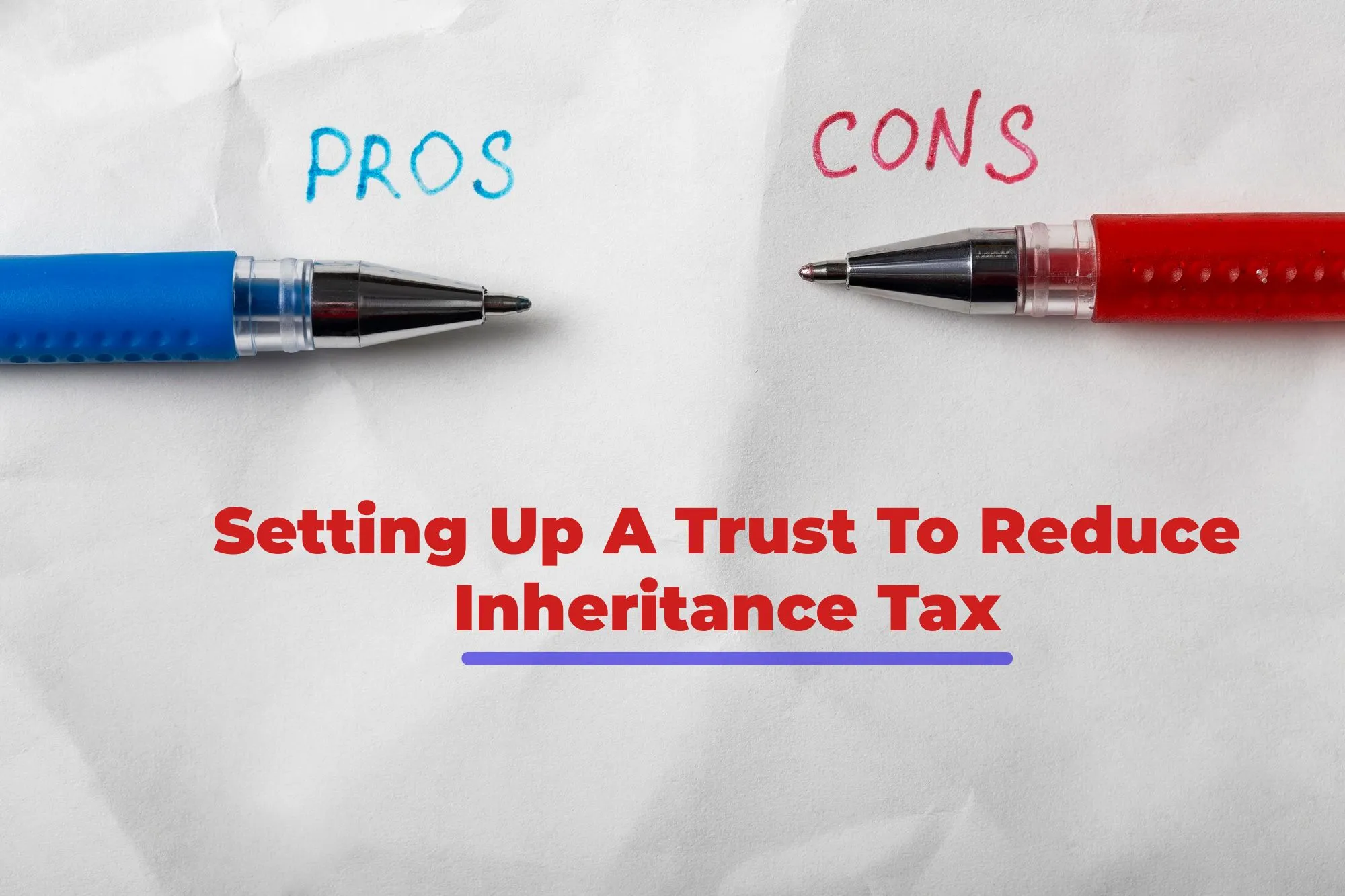For an effective death tax planning, understanding the UK inheritance tax and trusts is vital. Trust is a very important tool as it can have a big impact on inheritance tax liabilities (death duty) for UK residents/non-residents. How trusts work in the UK is not simple.
For your death/estate planning , you need to know about trust and tax benefits they avail in the UK.
What is a trust and how does it work in the UK?
In the United Kingdom, a trust is a legal entity where you can transfer your property. If certain conditions are satisfied, the transferred property is excluded from your estate. Consequently, the value of the estate decreases, and thus the Inheritance Tax.
There are three parties in a trust in the UK-
- Settlor- The person creating a trust
- Trustee- The person owning the asset on behalf of a nominee (mostly settlor and trustee are same person/s)
- Beneficiary- The person who enjoys the income from the trust’s property
What are the different types of trusts available in the United Kingdom?
There are a number of different trusts as per the UK law. The major relevant to inheritance tax are two- Discretionary Trust and Interest in Possession Trust.
If the trustee has the right over income/capital of the property, it is Discretionary Trust. The trustee can retain income and capital of the property without distributing anything to the beneficiary.
If the trustee does not have right over income/capital of the property, it is Interest in Possession (Life Interest) trust. The beneficiary instead enjoys all the income and capital.
Explore our comprehensive article on “Estate Administration and Inheritance Tax in the UK ” for expert insights and guidance.
How can setting up a trust help reduce inheritance tax?
IHT chargeable to a specific property can be lessened from usual 40% to 26% if you create a trust and survive for 7 more years. How to choose the right type of trust for inheritance tax reduction is a key question. A discretionary trust is a type of trust that can cut overall IHT.
IHT payable on such trust is:
20% initial charge when creating trust,
Then 0-6% principal charge every 10 years (or one-off exit charge of 0-6%)
(Exit charge is levied when the property is transferred from the trust to the beneficiary)
Once the property leaves the trust by paying exit charge, IHT liability extinguishes. That means, if you create a trust (paying 20% immediate charge), then transfer the property to the beneficiary after 7 years (paying 0-6% exit charge), maximum IHT is 26% (20%+6%), in contrast to usual 40%.
How much inheritance tax can I save by setting up a trust?
It depends on the value of the property and other factors. Let’s see an example:
Paz (36 years old) has 3 properties (A, B and C) worth £325,000 each. In January 2023, he creates a trust (with his son as beneficiary) for property A. In January 2030, the property is transferred to the son.
In February 2030, he creates another trust for property B. In February 2037, the property is transferred to the son.

Let’s calculate IHT payable by the trust.
|
Initial charge |
Property A |
Property B |
Total |
|---|---|---|---|
|
Immediate charge on transfer (20%*325,000) |
65,000 |
65,000 |
130,000 |
|
Exit charge in January 2030 and February 2037 |
Property A |
Property B |
Total |
|---|---|---|---|
|
Initial value |
325,000 |
325,000 |
Nil |
|
Nil Rate Band (assuming the current rate) |
(325,000) |
325,000 |
Nil |
|
Net value |
Nil |
Nil |
Nil |
|
Maximum exit charge payable (6%* Net value) |
Nil |
Nil |
Nil |
|
Total IHT (65,000+65,000+Nil) |
Nil |
Nil |
130,000 |
|
Had Paz not created the trust, he would have paid IHT of (Property A – 40%*325,000 + Property B – 40%*325,000) |
Nil |
Nil |
Nil |
|
Saving in IHT by creating trust (£260,000- £130,000) |
Nil |
Nil |
130,000 |
Here, Paz saved £130,000 of IHT because he planned when he was 36. He had enough time to create one trust, wait for 7 years, create another trust and wait for 7 more years.
Your situation might be different from this example. But if you hope to live at least 7 more years, you can cut at least some IHT by creating a trust.
Inheritance Tax Calculator
Stay ahead of the competition and know the applicable tax on your Inheritance tax.
What is the process of setting up a trust in the UK?
To register a trust, the trustees need to provide details to HMRC like
- Name, date of birth, national insurance number and address trustees, beneficiaries and settlor
- Date of trust creation, country where trust is resident, and the value and address of the property transferred
Trusts should register by 5 October following the tax year when trust is liable to pay tax.
What are the responsibilities of a trustee in a trust?
Role of a trustee in managing a trust in the UK is crucial. A trustee looks after the trust’s properties. If required, s/he distributes income to the beneficiary and finally handovers the property to the beneficiary. Depending on the type of trust, s/he can add other properties or sell the property.
Discover even more insights and expert advice by exploring our full guide on “Inheritance Tax in UK – A Complete Guide“.
What are the pros and cons of setting up a trust?

UK inheritance tax laws allow huge tax benefits of trust (if you plan 7 years before you die).
Trust has several merits- registering a trust and its administration are not very complex like of a company, and through the trust, you can securely transfer the assets to your young ones.
On the other hand, as a disadvantage/demerit of trust, managing fund to pay immediate charge of 20% tax is difficult. Similarly, if you die unexpectedly within 7 years of creating trust, your heir has to pay 20% additional tax (making 40% IHT in total).
While trust can help inheritance tax reduction, you need to consider potential drawbacks/demerits.
Conclusion
Trust and inheritance tax are quite related in the UK. Understanding current inheritance tax rates/laws and trusts in the UK can mitigate your tax issues.
Though it is easy to understand the process of forming a trust, using trusts as a tool for estate planning in the UK is possible only when legal considerations are taken when setting up a trust.
Explore Our Additional Resources on Inheritance Tax Savings
The importance of making a will to avoid inheritance tax in the UK
How to transfer your property without paying Inheritance Tax in the UK (BPR)
Residence Nil Rate Band | Inheritance Tax Relief
Ready to start planning your Inheritance Tax strategy?
Contact us today for efficient and hassle-free assistance.



